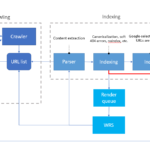Diet Shaming and Fit Shaming: Understanding the Hidden Judgment in Fitness Culture
In the journey towards better health and fitness, there is one thing many people don’t talk about enough — diet shaming and fit shaming. You may have experienced it yourself or witnessed it happen to someone around you: a backhanded comment, an unsolicited opinion, or a sarcastic remark about your food or workout habits.
Once someone achieves visible fitness progress, society often starts questioning why they still choose to count calories, follow a structured diet, or work out daily. This social phenomenon is not only discouraging but also reflects a deeper misunderstanding about what fitness truly means.
What Is Diet Shaming and Fit Shaming?
Diet shaming is the act of mocking or criticizing someone’s dietary choices, especially when those choices are viewed as overly strict or different from the norm.
Fit shaming, on the other hand, refers to the negative comments or assumptions made when someone continues to pursue fitness despite already appearing “fit” or “healthy.”
Examples of diet shaming and fit shaming:
- “You’re already slim, why are you still dieting?”
- “Why do you weigh your food? That’s obsessive.”
- “Tum diet pe ho kya?” (just because someone ordered a salad)
- “Paneer, cheese, and chocolate? Is this even diet food?”
- “Calories are just a myth, eat home food. Sab kuch chalta hai.”
These kinds of remarks can be hurtful, especially when they come from close friends or family members. They often reflect ignorance and sometimes even envy.
Why People Experience Shaming After Getting Fit
After reaching a fitness milestone — whether it’s losing weight, building muscle, or just improving stamina — people expect appreciation, not interrogation. But ironically, this is when many start receiving negative feedback. Here’s why:
1. Misconceptions About Fitness
People believe that once you look “fit,” the job is done. But fitness is not a destination, it’s a continuous process. Muscle maintenance, strength progression, hormonal balance, and mental well-being all require ongoing effort.
2. Cultural Conditioning
In many cultures, including Indian society, food is emotion. Choosing to eat differently is often seen as a rejection of tradition or affection. Hence, people say things like, “Ghar ka khana hi best hota hai” or “Ek din cheat kar loge toh kya farak padta hai?”
3. Jealousy or Insecurity
Sometimes, when someone else is disciplined, it can make others feel guilty or inadequate about their own habits. This discomfort often turns into mocking or teasing.
The Truth: Fitness Is Personal
Everyone has different reasons to pursue fitness — to lose weight, to gain strength, to improve health markers, or to feel more energetic. Your body, your goals, and your habits are your choice.
Whether you:
- Count your macros and calories
- Eat 100g of paneer daily
- Avoid sugar and deep-fried foods
- Wake up at 5 AM for a workout
…it is your personal decision, and it doesn’t require social approval.
Why Maintenance Is Harder Than the Journey
Fitness is not just about getting results — it’s about sustaining them. And this is where most people slip.
“What got you here, will keep you here.”
If you built your fitness with discipline, it takes the same discipline to maintain it. Reverting to old habits can reverse progress quickly, especially when it comes to body fat percentage, strength, or endurance.
How to Respond to Diet Shaming or Fit Shaming
Here are a few polite yet powerful responses you can use:
- “I enjoy eating this way because it makes me feel good.”
- “Fitness is a lifestyle for me, not just a phase.”
- “Yes, I track calories—it helps me stay on track.”
- “Everyone’s goals are different. This is what works for me.”
Sometimes it’s better to not engage and continue doing what works for you. Let your consistency speak louder than any opinion.
Myth-Busting: Popular Fitness Misconceptions
| Myth | Reality |
|---|---|
| “Ghar ka khana is always healthy.” | Not if it’s loaded with oil, sugar, or lacks protein. |
| “Calories don’t matter.” | Calorie balance determines weight gain or loss, regardless of food type. |
| “Once fit, you don’t need to work out daily.” | Maintenance and performance goals require ongoing effort. |
| “Tracking food is unhealthy.” | Tracking provides awareness and helps avoid mindless eating. |
SEO Keywords to Rank This Article
- Diet shaming
- Fit shaming
- Fitness culture judgment
- Calorie tracking myths
- Ghar ka khana healthy or not
- Healthy eating social stigma
- Fitness goals maintenance
- Body shaming in fitness
- Lifestyle transformation
- Social pressure in dieting
Frequently Asked Questions (FAQs)
❓ Is it okay to continue dieting after reaching my goal weight?
Yes. Dieting isn’t always about weight loss — it can be about muscle gain, better digestion, energy management, or maintaining progress.
❓ Why do people make fun of healthy eating?
Often due to a lack of understanding, resistance to change, or insecurity about their own habits.
❓ How can I handle fit shaming from friends or family?
Be firm yet kind. Educate them if they’re open. Otherwise, set clear boundaries.
❓ Is calorie tracking sustainable long term?
Yes. Many people use it as a mindful tool rather than an obsession. It creates food awareness.
❓ Can homemade food make you gain weight?
Yes, if not portion-controlled. Oil, sugar, and carbs in large quantities—even from homemade food—can lead to weight gain.
Final Thoughts: It’s Your Journey
In a world that praises temporary transformation but questions sustained effort, remember this — you owe no one an explanation for taking care of your health. Whether you lift heavy, eat clean, or say no to sugar, it’s not about being perfect — it’s about being committed.
Let them gossip. You keep growing.
#dietshaming
#fitshaming
#fitnessjourney
#bodypositivity
#calorietracking
#healthylifestyle
#mindsetmatters
#fitgoals









